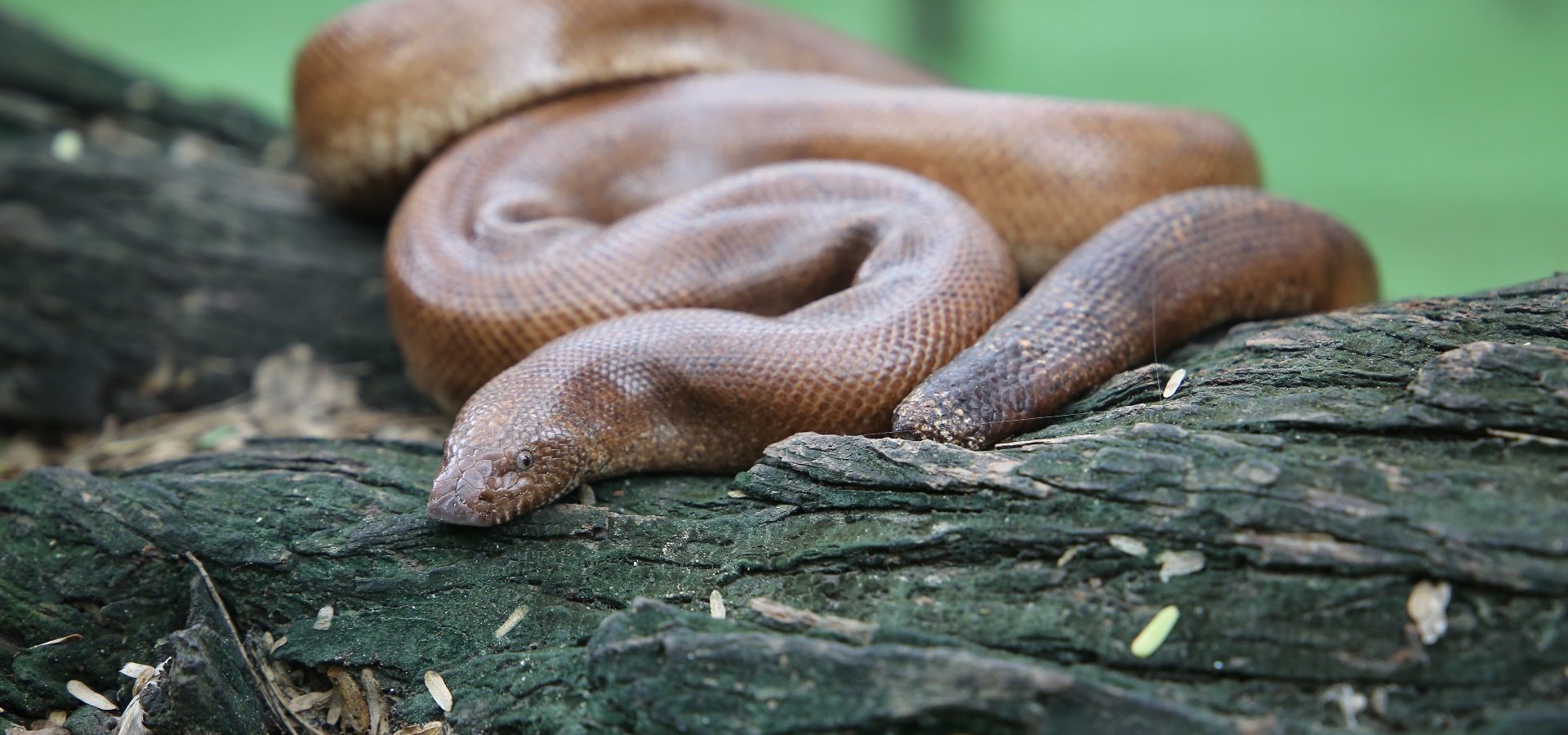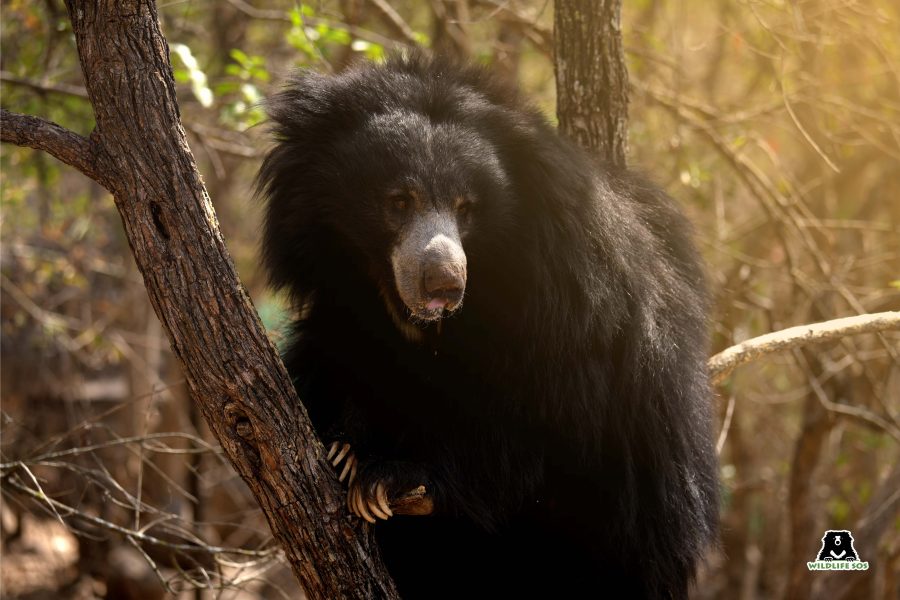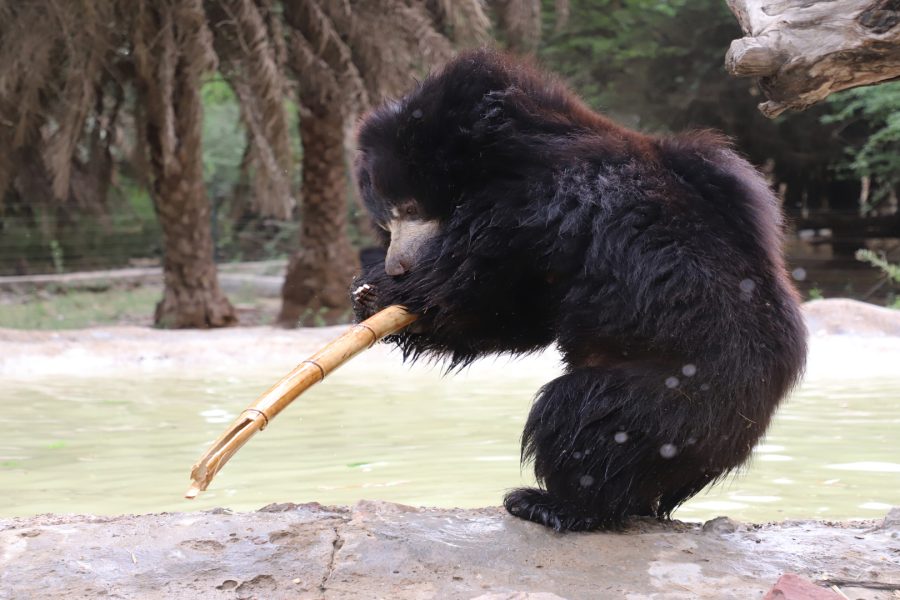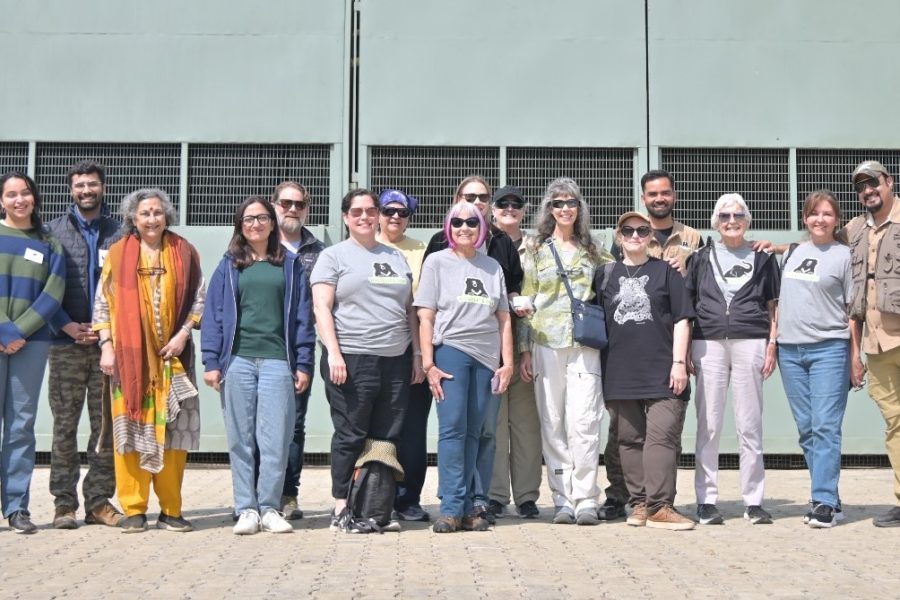Nearly 120 km from Vadodara, close to the Gujarat-Maharashtra border, an illegal wildlife trade racket was busted by the Wildlife SOS Rapid Response Unit from Vadodara, Gujarat, along with the Gujarat Society for Prevention of Cruelty to Animals (GSPCA). The team rescued a pair of Red sand boas in this particular operation.
The Wildlife SOS-GSPCA team travelled over 100 km to the village of Deriyapara to save the two sand boas who were about to become victims of the illegal wildlife trade. When the team reached the location, the snakes were found inside a drum in one of the village houses. Raj Bhavsar, President, GSPCA revealed that the culprits had poached the sand boa pair from the wild and were actively looking for buyers. The rescue team found the snakes to be nearly 4 feet long and safely handed them over to the forest department.
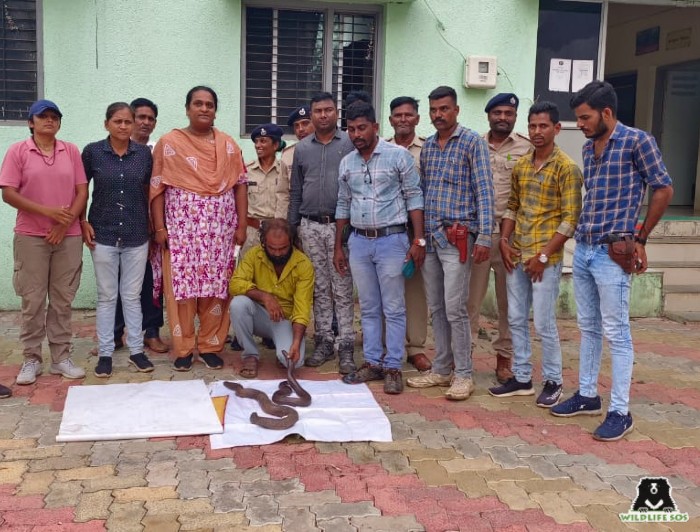
Conducting raids of this nature is extremely complicated and pose high risks. The team has to be careful that the traffickers and sellers do not get a whiff of the team’s presence or their impending aim. This requires days, sometimes even weeks of surveillance and intel gathering. This time, our team was armed with all the requisite information to complete the raid successfully. Once they zeroed in on the seller’s residence, an undercover operation was launched to nab the perpetrators, wherein our team assisted the enforcement authorities, which in this case was the state forest department.
Red sand boa, commonly called the Indian sand boa, is a non-venomous snake endemic to India, Pakistan and Iran. Found mostly in dry parts of the country, it prefers loose soil that breaks easily, creating burrows where it spends most of its time. The Red sand boa is a nocturnal species that leaves its burrow at night in search of prey. It mostly feeds on mammals like rats, mice, and other small rodents.
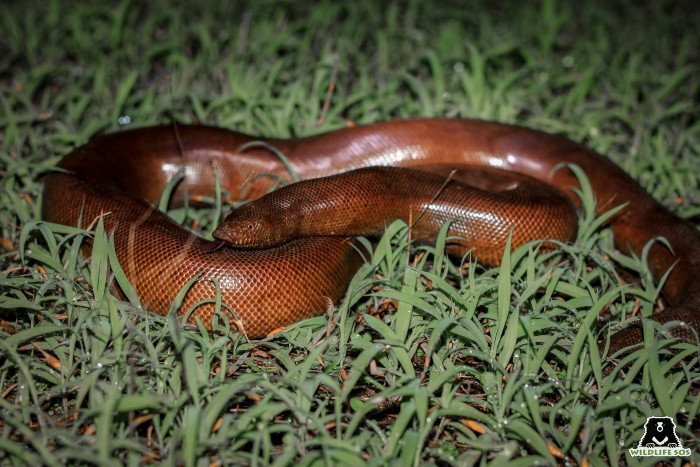
This species is referred to as ‘do muha’ in Hindi, which translates to ‘double-headed’; its thick, blunt tail gives the snake an appearance of having two heads. It is also easily recognisable due to its shovel-shaped nose. Its unusual appearance has led to numerous superstitions being attached to the snake. Some consider it to be lucky, while others believe the snake possesses anti-aging properties.
In Gujarat, the sand boa is a victim of superstition as well and used in black magic or occult rituals which makes it an ideal target for trafficking. The animal is protected under Schedule IV of India’s Wildlife (Protection) Act (WPA),1972, making any sale or possession of sand boas punishable. These wildlife racketeers also trade in other species such as hedgehogs, owls, turtles and tortoises, and are found with different animals at different times depending on the species they are able to get their hands on.
In the same week, the Wildlife SOS-GSPCA team found itself in the middle of another rescue situation. A nearly 6-foot-long Mugger crocodile was spotted in a village near Vadodara which was trapped in a fishing net.
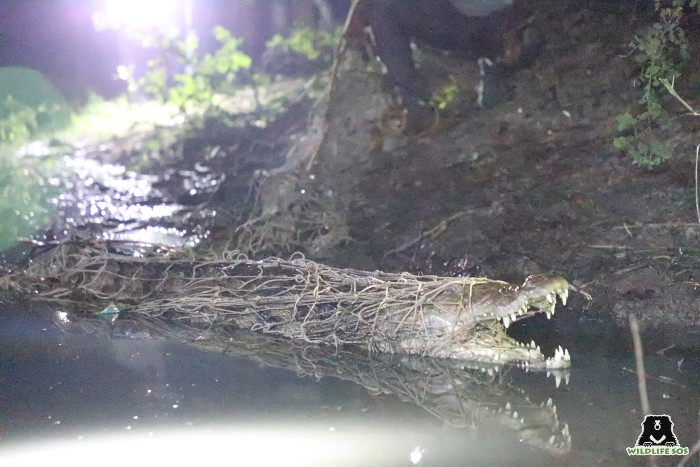
The Wildlife SOS Rapid Response Unit immediately rushed to the location after the locals apprised them of the scenario, and it took the team nearly 15 minutes to safely extricate the reptile. The team took extreme caution and removed the net with prudence so as to not harm the crocodile. The reptile was safely handed over to the forest department and would be eventually released into a suitable water body.
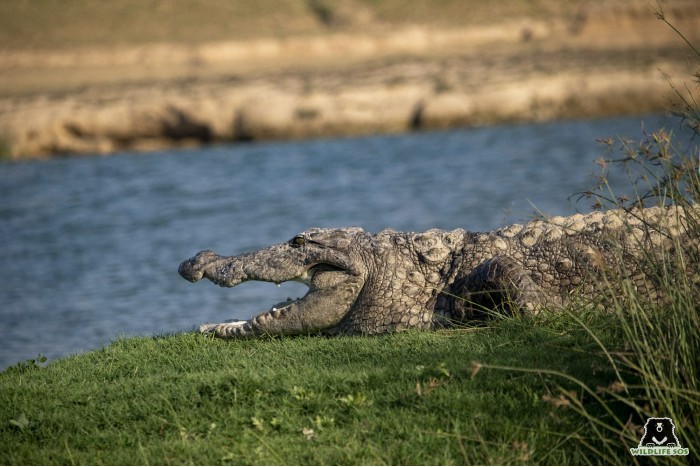
Gujarat has one of the highest population densities of Mugger crocodiles in the world, and it is not rare to sight them near human habitations. They are mostly found in freshwater habitats such as rivers, lakes, village ponds, streams and man-made reservoirs. Wildlife SOS carries out crocodile rescues across Gujarat and has rescued these reptiles from fishing nets before. The Mugger crocodile, also known as the Marsh crocodile, is one of the three crocodilian species found in India, and has the broadest snout of the three. Muggers are listed as ‘Vulnerable’ in the IUCN Red List and under Schedule I of WPA.
Wildlife SOS contributes significantly through various initiatives to curb poaching and wildlife trafficking. Our anti-poaching unit ‘Forest Watch’ assists state forest departments and law enforcement agencies to capture wildlife traffickers and smugglers, and recover animals and their body parts. Wildlife SOS also runs four 24×7 rescue helplines across four regions in the country, namely Delhi-NCR, Agra, Vadodara and Jammu and Kashmir, to save wild animals from distress situations. You can consider becoming a monthly donor for Wildlife SOS. Support our life-saving anti-trafficking and rescue efforts by clicking here.

